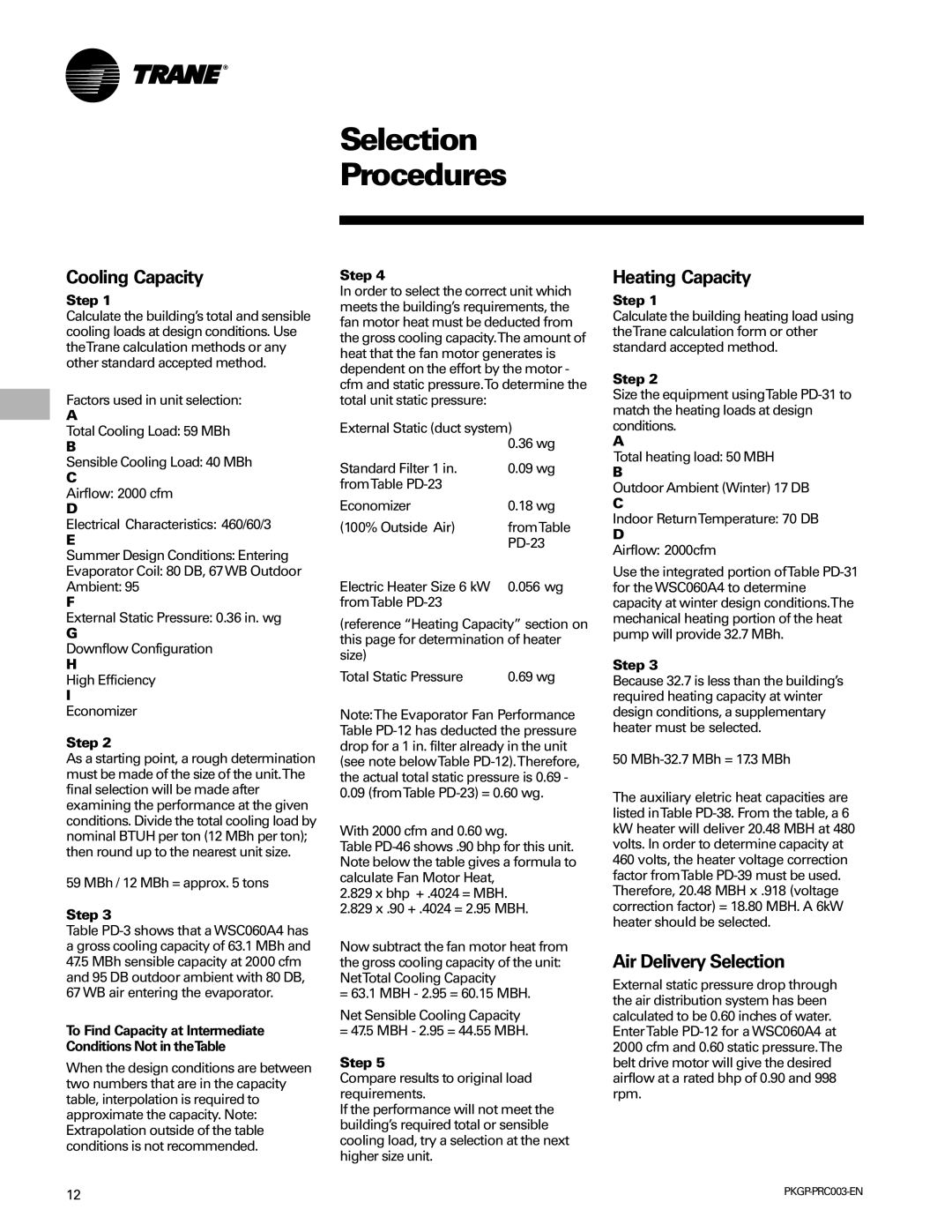PKGP-PRC003-EN specifications
The Trane PKGP-PRC003-EN is a high-performance packaged rooftop unit designed to provide efficient heating, cooling, and ventilation solutions for a wide variety of commercial applications. Its innovative design encompasses advanced technologies aimed at improving energy efficiency and overall operational efficiency.One of the standout features of the PKGP-PRC003-EN is its highly efficient variable speed compressor. This technology allows the unit to modulate its capacity based on the specific needs of the environment, ensuring optimal comfort levels while reducing energy consumption. Coupled with a robust fan system, the unit can maintain precise temperature control in fluctuating weather conditions, providing reliable comfort year-round.
The unit's advanced controls use a user-friendly interface that simplifies operation and monitoring. These controls can be integrated with building management systems (BMS), allowing for seamless connectivity and enhanced control over the HVAC system. With the capability for remote monitoring, facility managers can track performance metrics and receive alerts for maintenance, ensuring that the unit operates efficiently and minimizes downtime.
In terms of design, the PKGP-PRC003-EN is equipped with durable construction materials that withstand outdoor environments, ensuring a long lifespan with minimal maintenance. The unit’s compact footprint allows it to fit in tight spaces on rooftops, making it an ideal choice for urban environments where space is limited.
Furthermore, the Trane PKGP-PRC003-EN incorporates advanced filtration systems to improve indoor air quality. These filters effectively capture dust, pollen, and other allergens, contributing to a healthier indoor environment. The unit is also designed with sound attenuation features, minimizing operational noise, which is particularly beneficial for installations in noise-sensitive areas.
Overall, the Trane PKGP-PRC003-EN sets a high standard in the realm of rooftop HVAC solutions. Its combination of energy efficiency, smart control capabilities, and robust construction makes it a reliable choice for businesses looking to enhance their indoor climate while being mindful of operational costs. The integration of advanced technologies ensures that it not only meets but exceeds the expectations of modern HVAC performance, all while maintaining user-friendly operation and maintenance.

